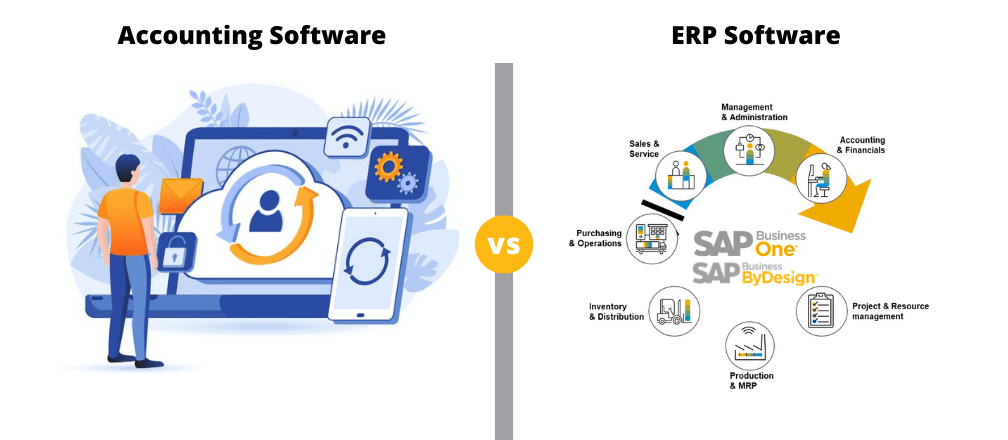erp vs accounting software Erp accounting
Hey there! Today, let's talk about the fascinating difference between two essential business tools: ERP (Enterprise Resource Planning) and accounting software. Both play crucial roles in helping businesses manage their operations smoothly, but they have distinct features that set them apart. So, let's dive right in and explore their unique functionalities!
The difference between an ERP vs. Accounting software

Firstly, let's define the scope of each software. Accounting software primarily focuses on financial transactions and bookkeeping. It ensures that all monetary transactions, such as invoicing, billing, and financial reporting, are accurately recorded. On the other hand, ERP software covers broader aspects of business operations, including inventory management, supply chain, human resources, sales, and customer relationship management.
While accounting software provides detailed and meticulous financial insights, ERP software offers a comprehensive view of an organization's entire operations, enabling effective management and decision-making. ERP systems integrate data from various departments, allowing seamless communication and collaboration across teams.
Enterprise Resource Planning (ERP) vs. Accounting Software

Now, let's dig a bit deeper into the specific functionalities of both ERP and accounting software. Accounting software typically includes features such as accounts payable and receivable, general ledger, expense tracking, and financial statement generation. It helps businesses maintain accurate records, streamline financial processes, and comply with accounting regulations.
On the other hand, ERP software offers a vast array of functionalities tailored to different departments. For instance, the inventory management module allows organizations to track and manage their inventory levels, streamline procurement processes, and optimize stock levels. The sales and marketing module helps businesses manage leads, create quotes, and track sales pipelines, enhancing customer relationships and boosting sales revenue.
Human resources, another critical aspect of ERP software, ensures streamlined management of employee data, payroll, benefits, and performance evaluation. This not only improves HR operations but also supports strategic workforce planning and talent management within an organization.
The beauty of ERP software lies in its ability to centralize and streamline various operations onto a single platform, eliminating data silos and increasing efficiency. While accounting software provides a strong financial foundation, an ERP system provides a holistic view of the entire business, enabling organizations to make informed decisions and streamline their processes more effectively.
So, whether you choose accounting software to maintain accurate financial records or opt for an ERP system to centralize and streamline your overall business operations, both tools play crucial roles in steering your business towards success. Assessing your organization's specific needs and considering factors such as scalability, integration capabilities, and cost-effectiveness will help you make an informed decision.
In conclusion, ERP and accounting software are two indispensable business tools with distinct functionalities. While accounting software focuses primarily on financial transactions and bookkeeping, ERP software provides a comprehensive view of an organization's entire operations. Assessing your business requirements will guide you in selecting the software that best suits your needs and helps you empower your organization to achieve greater heights!